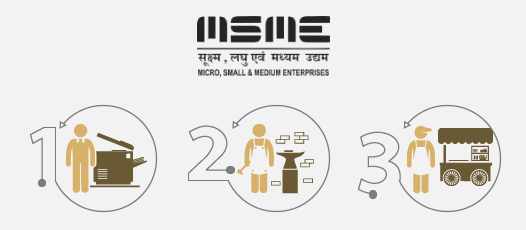What is the ‘Startup India Initiative’ launched by Govt of India
What is the ‘Startup India Initiative’ launched by Govt of India
The term startup is generally used to describe innovative businesses which are in their early stages of the business cycle. With an idea to promote business as a solution to unemployment the Government of India under the leadership of Honorable Prime Minister Narendra Modi, launched the ‘Start-up India Fund Scheme’ in 2015. The Government through this scheme attempts to incentivise with various tools like tax reliefs, research and development facilities, etc. turning innovative ideas into real businesses Since its inception the scheme has gone through some policy changes. Currently, 67000+ have been registered under this scheme, according to Startup India’s official website. The implementation of the said scheme is being looked after by Department for Promotion of Industry and Internal Trade (DPIIT) which is a part of Ministry of Commerce and Industry. In this blog, we dive deep into what this scheme is and how entrepreneurs can make use of it.
- What is a ‘Startup’ under this Scheme?
An entity shall be considered as a Startup:
- Upto a period of 10 years from the date of incorporation/ registration, if it is incorporated as a private limited company or registered as a partnership firm or a limited liability partnership in India.
- Turnover of the entity for any of the financial years since incorporation/ registration has not exceeded Rs 100 crore.
- Entity is working towards innovation, development or improvement of products or processes or services, or if it is a scalable business model with a high potential of employment generation or wealth creation.
Provided that an entity formed by splitting up or reconstruction of an existing business shall not be considered a ‘Startup’.
- Notable Benefits of being a recognised startup under this scheme
- The corporate tax benefits of registering an entity as a startup under this scheme are notable. Some of them are:
- Section 80IAC: An entity can claim tax holiday, that is exempted from paying income tax for 3 assessment years under section 80 IAC of the Income Tax Act, 1961, out of 10 assessment years from the date of its incorporation, at the option of the assessee. A notable provision of this section is that the benefit of tax holiday is only extended to entities in the form of companies and limited liability partnerships.
- Section 56(2)(viiib): Exemption is granted to recognised startups from the provisions of Section 56(2)(viiib), that is when consideration for issue of shares exceeds Fair Market Value (FMV) provided that the aggregate of paid up share capital and securities premium of such startup is upto 25 crore rupees. The startup has to submit Form 2 (as notified by DPIIT) to DPIIT to claim exemption.
- Section 54EE: Further, section 54EE allows exemption from tax on long-term capital gain if such long-term capital gain is invested in a fund notified by the Central Government. The maximum amount of exemption that can be claimed is Rs. 50 lakh.
- Self Certification Based Compliances: Ministry of Environment and Forests (MOEF) and Ministry of Labour and Employment (MOLE) have eased compliance burden for startups by introducing self certification processes.
Ministry of Environment and Forests (MOEF) has published a list of 36 white category industries. Startups falling under the “White category” would be able to self certify compliance in respect of 3 Environment Acts.
- The Water (Prevention & Control of Pollution) Act, 1974;
- The Water (Prevention & Control of Pollution) Cess (Amendment) Act, 2003;
- The Water (Prevention & Control of Pollution) Act, 1981.
Further, Ministry of Labour and Employment (MOLE) has issued guidelines to State Governments whereby Startups shall be allowed to self-certify compliance in respect of Labour laws. So far 9 States have confirmed compliance to the advisory issued by MOLE - Rajasthan, Uttarakhand, Madhya Pradesh, Chhattisgarh, Delhi, Jharkhand, Gujarat, Chandigarh, Daman & Diu.
(3) A startup recognised by DPIIT can make use of the Govt’s Startup India Seed Fund Scheme (SISFS) which aims to provide financial assistance to startups subject to some eligibility conditions laid down in it.
(4) There are many benefits and exemptions granted to startup companies under Companies Act, 2013 as well. For example:
- Financial Statements of Private limited companies which are startup companies need not include Cash Flow Statement.
- A start- up company may issue sweat equity shares upto 50% of its paid up capital upto ten years from the date of its incorporation or registration as compared to 15% for other companies.
- Annual Return of a private limited company which is also a recognized startup may be signed by a Director of the company.
- A private limited company which is a recognised startup needs to convene only two board meetings in each half of the financial year with a gap of minimum 90 days between the two meetings.
- How to get your startup recognised by DPIIT
As per DPIIT notification dated 19th February, 2019 a startup has to make an application to the DPIIT through a mobile application or a portal set up by DPIIT (https://www.startupindia.gov.in/content/sih/en/registration.html) in this regard. The application shall be supported by Certificate of Incorporation and a write up on the nature of business. The DPIIT on being satisfied after asking for additional documentation shall recognise the startup as eligible for benefits.
After modification in the definition of startup, time taken to grant recognition is between 1 to 4 business days.











